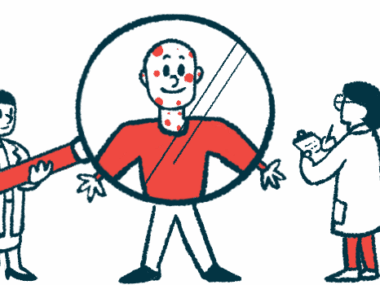How my young children had to adapt to having a sick parent
I worried about how my health crisis would affect my boys
Written by |

He looked up at me with his giant, deep brown eyes, and my heart immediately felt like it would burst. Before I could even stretch out my hands to signal for him to climb up, he was already settled in my lap. His tiny hands, feet, and voice melted my heart. My sweet youngest baby, who had been my shadow until my hospitalization, now wore a concerned expression on his face as his eyes locked onto the port catheter hanging out of my chest.
Once in my lap, he curled himself into the tiniest ball of wonder and awe. He looked at my face and then at the plastic tubing and gauze protruding from my chest. His gaze followed the tubing up my chest and into my neck. I wiggled my head a little so he could see the tubing move beneath my skin.
“Mommy, are you still sick?” he asked. Sadly, I was still absolutely sick. And the type of “still sick” I was would change our lives forever. I felt so unwell that it seemed as if I shouldn’t be alive. I’d just left the hospital, where I’d spent almost two months in the intensive care unit. I nearly died from a rare disease called atypical hemolytic uremic syndrome (aHUS).
Unbeknownst to me, the disease had been attacking my body for months. I had brushed off my symptoms as fatigue from a new job and complications from lupus, a condition I also suffer from. My immune system had gone haywire, attacking every element of blood production in my body. aHUS was destroying my red blood cells, and any remaining blood cells were forming deadly clots in my kidneys, liver, heart, and uterus. Meanwhile, immune thrombocytopenia was destroying my platelets, and thrombotic thrombocytopenic purpura was affecting my plasma. I was undoubtedly still sick.
I looked at my 4-year-old in my lap and my 5-year-old playing across the room. How do I convey to these sweet boys just how sick I really am? How much of the information will they truly comprehend? And how much stress and pressure will that place on them mentally and emotionally?
Uprooting my kids’ lives
As a parent, I’ve always tried to shield my children from the horrors of the world. I had a strange, complicated, and violent childhood, enduring things no child should go through. I wanted a very different lifestyle for my children. They had grown up with everything they ever wanted: plenty of food, the coolest toys, fun adventures, and my constant presence — until now.
Now I had just fought the hardest battle of my life and faced an unknown fight ahead — one that didn’t seem fair for my children to endure. While I was the one who was sick, I was devastated at the thought of how it would affect my boys. Their lives had already been suddenly uprooted for the past two months while I was in the ICU, as they lived with their grandparents during my illness.
When I was released from the hospital, I still needed continuous medical treatment, including dialysis for three hours per day, three days a week; infusions at a chemotherapy center once a week; and blood transfusions twice a week. I also had several doctor appointments to attend. It didn’t look like I’d be able to bring my babies home with me.
I’ve always tried to be open and transparent with my kids to foster good communication as they grow older. In this situation, I needed to maintain some level of transparency. At ages 4 and 5, they didn’t have a broad worldview or the cognitive ability to fully grasp what was happening. Yet, it was essential to communicate how our lives would be changing.
This new, rare chronic illness would affect them, too. Our children are little individuals with feelings, emotions, hopes, and fears. They may not fully understand the science behind such issues, but they are learning compassion, understanding, and patience. Children are stronger and more resilient than we often give them credit for. After five years of watching me navigate this illness, they’ve grown and learned so much about the medical field, patient advocacy, patient care, compassion, and empathy.
Note: aHUS News is strictly a news and information website about the disease. It does not provide medical advice, diagnosis, or treatment. This content is not intended to be a substitute for professional medical advice, diagnosis, or treatment. Always seek the advice of your physician or other qualified health provider with any questions you may have regarding a medical condition. Never disregard professional medical advice or delay in seeking it because of something you have read on this website. The opinions expressed in this column are not those of aHUS News or its parent company, Bionews, and are intended to spark discussion about issues pertaining to aHUS.







Leave a comment
Fill in the required fields to post. Your email address will not be published.